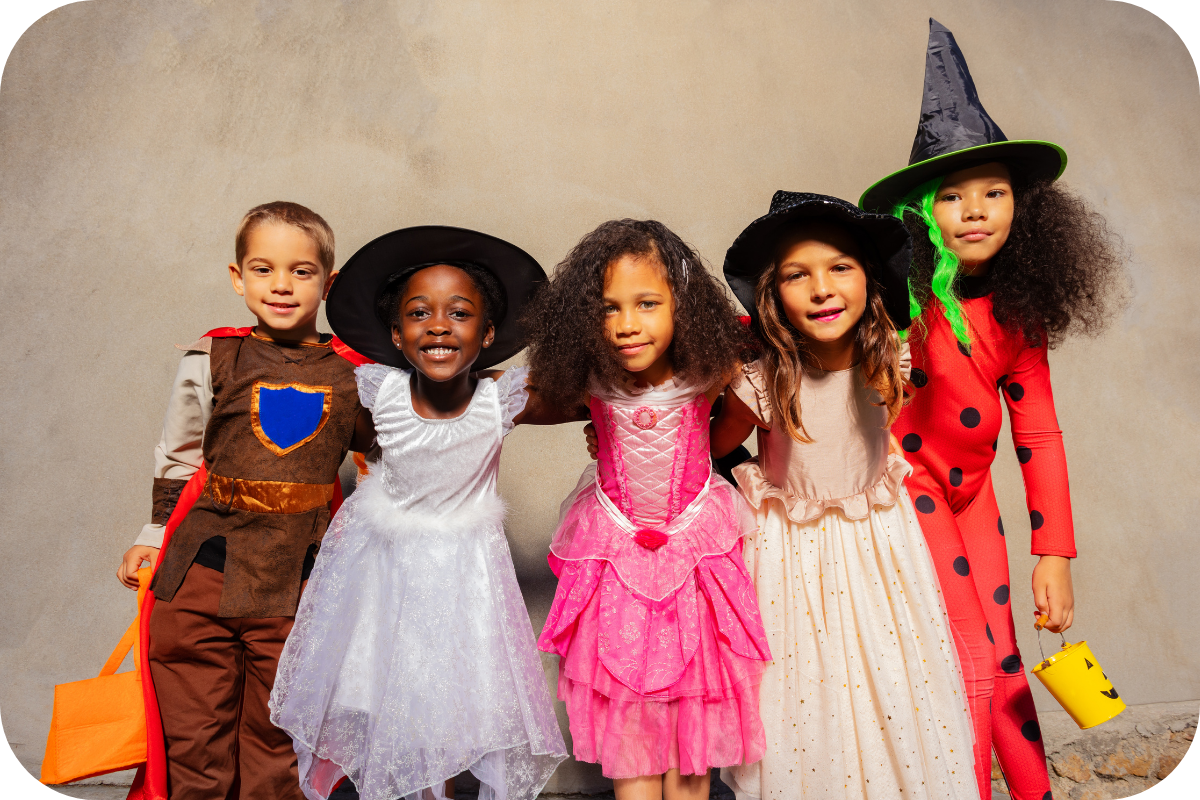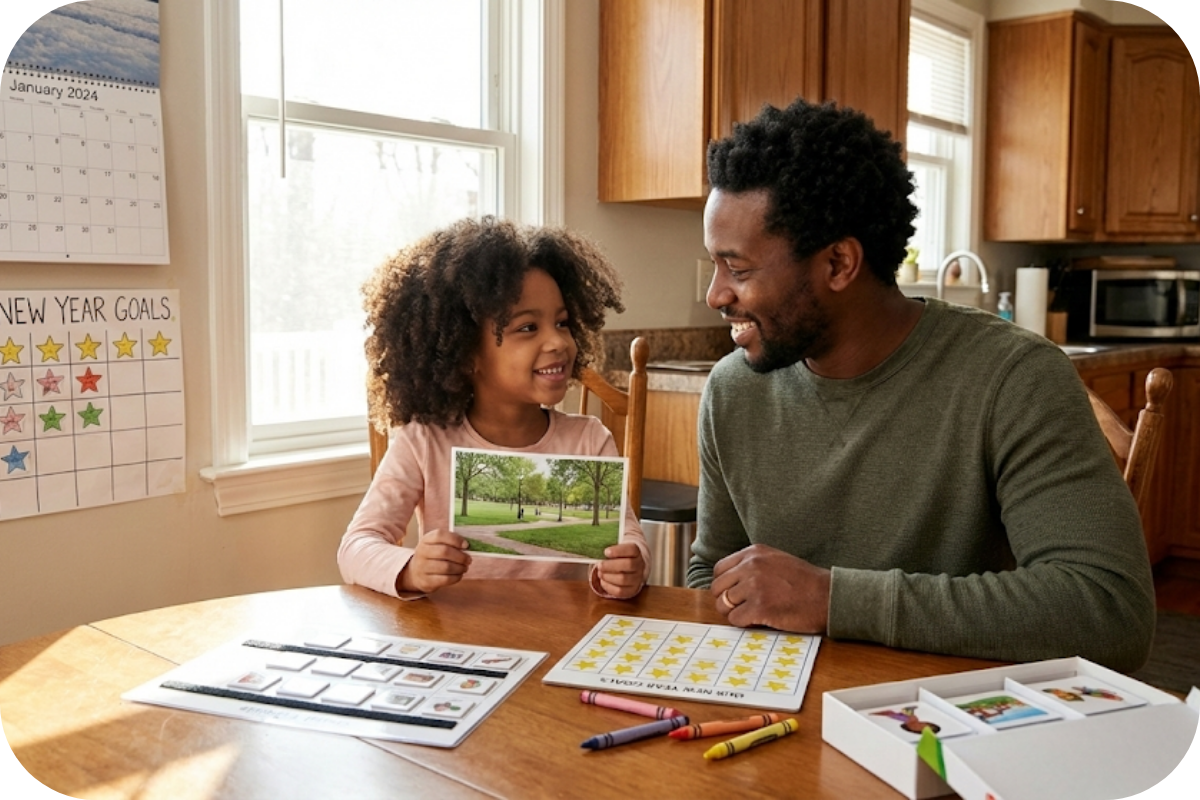Sensory-Friendly Halloween Tips for Kids with Autism
Halloween can be overwhelming for children with autism, but with the right strategies, families can make it enjoyable and stress-free. This guide from Early Autism Services shares sensory-friendly tips, autism-friendly activities, safety advice, and personalized support to help caregivers create a positive and inclusive Halloween experience for their children.

Introduction
Halloween is a time filled with excitement, costumes, and neighborhood fun, but for many children with autism, it can also bring unique challenges. Bright lights, loud noises, itchy costumes, and social expectations can quickly become overwhelming. That doesn’t mean families have to miss out on the holiday. With the right planning and strategies, Halloween can be both fun and stress-free. In this blog, we’ll explore why Halloween can be difficult for kids with autism, sensory-friendly tips to make the night smoother, autism-friendly activity ideas, safety strategies for trick-or-treating, and how Early Autism Services (EAS) can support families.
Why Halloween Can Be Challenging for Kids with Autism
For children with autism, Halloween may feel more overwhelming than exciting. Costumes made of scratchy fabrics, flashing lights from decorations, or the sound of doorbells ringing repeatedly can cause sensory overload. What feels festive to some may feel distressing to others.
In addition, Halloween is built around social expectations, knocking on doors, saying “trick-or-treat,” or joining large groups of kids. These situations can feel intimidating or confusing for children who find social interactions challenging. Understanding these factors is the first step in preparing for a more enjoyable holiday.
Sensory-Friendly Tips for a Calm Halloween
Choosing Comfortable Costumes
.png)
Costumes don’t have to be elaborate to be fun. Choose outfits made from soft, breathable fabrics that won’t irritate your child’s skin. Sometimes, modifying everyday clothing into a costume works best, for example, a favorite hoodie paired with simple accessories. Comfort should always come before appearance.
Practicing Trick-or-Treating at Home
Children often feel more confident when they know what to expect. Practice trick-or-treating at home by walking from room to room, knocking on doors, and saying “trick-or-treat.” This familiarizes them with the routine and reduces anxiety on the actual night.
Managing Noise & Lights
Halloween can be filled with loud noises, flashing lights, and unexpected sounds. Consider bringing noise-canceling headphones or identifying quieter neighborhoods for trick-or-treating. If decorations are overwhelming, remind your child it’s okay to skip certain houses.
Preparing with Visual Schedules
.png)
Visual aids help children understand what comes next. A simple picture schedule of putting on the costume, going outside, visiting a few houses, and returning home can reduce stress. This creates predictability, which many children with autism find reassuring.
Autism-Friendly Halloween Activities
Sensory Bins with Halloween Themes
A Halloween-themed sensory bin filled with safe items like small toys, or soft fabric pumpkins can provide hours of fun without overstimulation. This is a great option if trick-or-treating feels too overwhelming.
Home-Based Trick-or-Treat Game
Turn your home into a trick-or-treat adventure by having family members give out candy or small toys from different rooms. This activity allows your child to enjoy the tradition in a controlled, familiar environment.
Attending Local Sensory-Friendly Events
Many communities host sensory-friendly Halloween events, which often have reduced lighting, fewer crowds, and trained volunteers who understand children with special needs. Attending these events can be a safe and supportive alternative to traditional trick-or-treating.
Safety Tips for Trick-or-Treating
Halloween safety is especially important for families with children on the spectrum. Consider adding an ID bracelet or tag with your child’s name and your contact information. Stick to familiar neighborhoods to minimize confusion, and plan your route in advance.
A buddy system works well, whether with a sibling, friend, or caregiver, it ensures your child always has support nearby. Most importantly, let your child set the pace. If they’ve had enough after a few houses, that’s okay. The goal is to create positive experiences, not to complete every block.
How EAS Supports Families During Holidays
At Early Autism Services, we understand that holidays like Halloween can be both exciting and stressful. Our ABA therapy programs are designed to build skills such as communication, coping strategies, and flexibility, skills that make events like Halloween easier to navigate.
We work closely with families to create personalized strategies that fit their child’s unique needs, whether that’s preparing for new routines, managing sensory challenges, or building confidence in social settings. By partnering with EAS, you’ll have the support and guidance needed to make holidays enjoyable for your whole family.
Conclusion
Halloween doesn’t have to be overwhelming. With preparation, sensory-friendly strategies, and the right support, children with autism can enjoy the holiday just as much as any other child. Start small, make adjustments that fit your child’s comfort level, and celebrate progress over perfection.
Contact Early Autism Services today to learn how our personalized ABA programs can support your child during holidays and beyond.
FAQs
1. How can I prepare my child with autism for Halloween?
Practice at home, use visual schedules, and explain what to expect step by step.
2. Are there alternatives if my child doesn’t enjoy trick-or-treating?
Yes! Sensory bins, pumpkin decorating, or home-based games are fun alternatives.
3. What should I do if my child feels overwhelmed during trick-or-treating?
Take breaks, carry comfort items, and reassure them it’s okay to stop whenever they want.
4. Where can I find sensory-friendly Halloween events?
Check local community centers, autism support groups, or EAS updates for events near you.
5. How does ABA therapy help during holidays like Halloween?
ABA therapy helps children develop coping strategies, communication skills, and routines that reduce stress during special events.
Explore More

How ABA Therapy Helps Children Navigate Transitions and Routine Changes
ABA therapy helps autistic children manage transitions by building flexibility through predictable routines, visual supports, gradual changes, and positive reinforcement. With preparation and family-centered strategies, transitions become less stressful, empowering children to regulate emotions, adapt to routine changes, and navigate daily life with greater confidence and stability.

Meaningful Gifts That Support Calm, Play & Learning for Children with Autism
This blog offers a thoughtful guide to sensory-friendly gifts and activities that support calm, play, and learning for children with autism. It highlights how understanding sensory preferences and choosing gentle, engaging tools can reduce overwhelm, encourage emotional regulation, and create joyful, meaningful play experiences at home.

New Year, New Goals: Building Daily Living Skills with ABA Therapy
Setting realistic New Year goals helps children develop essential daily living skills through structured ABA therapy support. Practical routines, positive reinforcement, and strong parent collaboration promote independence, confidence, and measurable progress while reducing daily frustrations and creating meaningful family participation across home, school, and community settings through consistent goal setting and guidance.

